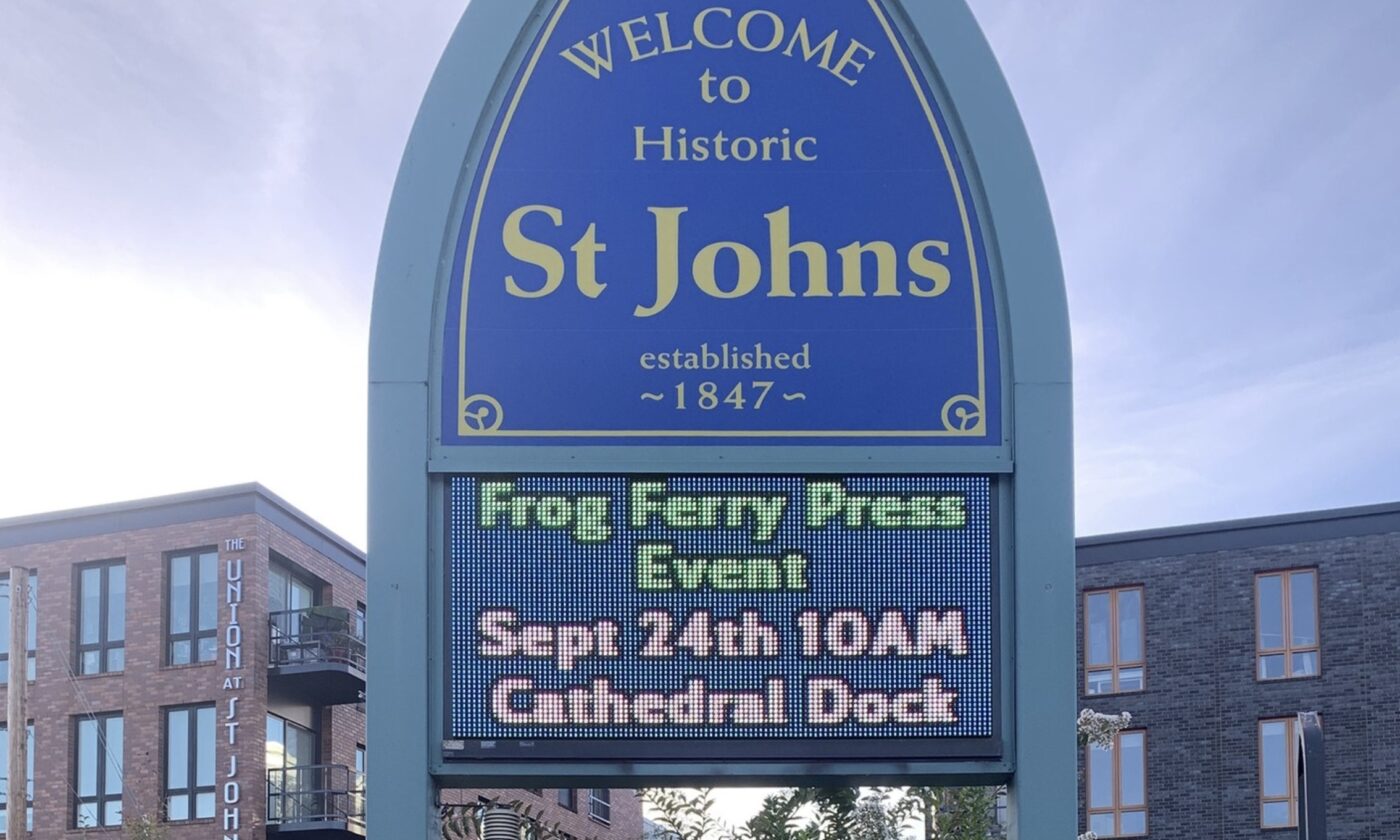“Dead in the water,” “going into hibernation,” and “very bad news.” These are the quotes we last read about the Frog Ferry project, an effort to launch passenger ferry service on the Willamette River. But now project backers are seizing the massive change in Portland’s government structure and hope a new slate of elected officials that come into office next year will give the ferry another look.
It’s been nearly a year since we last checked in on the ambitious project. In our story last fall, former transportation commissioner Mingus Mapps announced he would not support the addition of Frog Ferry to the Regional Transportation Plan project list — a required step that would position the project for state and federal funding.
But that was then, and this is now. This morning at what she hopes will be a future ferry terminal, Frog Ferry Executive Director Susan Bladholm and her team of supporters will host a press conference. “It’s time for Portland to do big things again!” reads the statement sent to local media in advance of the event. “The new city charter enables bold innovative ideas. It is time to come out of hibernation and activate Portland. It’s time for Portland to do big things again!”
Bladholm will have significant support by her side, including noted river advocate Willie Levenson from Human Access Project and Downtown Neighborhood Association (DNA) Board Chair Xavier Stickler. The DNA fully supports Frog Ferry, calling it “thoroughly researched, eminently feasible, and urgently needed.”
To underscore those compliments, Frog Ferry’s press release boasted a number of reasons their project is worth supporting:
Name a proposed Portland project that:
- Is affordable with federal Infrastructure Bill dollars available for green passenger ferries
- Fits criteria for the adopted Portland Climate Investment Plan: $100M for green transit
- Can be operational within three years and is a transit mode that is in demand
- Offsets 3,170 metric tons of CO2/year (growing to 95 million lbs. C02 with seven vessels)
- Will build community resilience
- Will activate our waterfront; Is a proven best practice around the world
- Will connect Portland with its largest green space
- Will reduce commuter time and foster a broader transit network
- Will encourage more people to live car free?
Frog Ferry says they need about $9 million to launch a proof-of-concept service between Cathedral Park and Riverplace in downtown Portland. That trip would take 25 minutes and cost $3 (one way) per passenger.
With the city’s budget still on life support, it will be interesting to see how — or if — candidates talk about this project on the campaign trail, and whether they believe it’s something that will earn them voters in council districts two (north Portland) and four (west side of the river and Sellwood).



